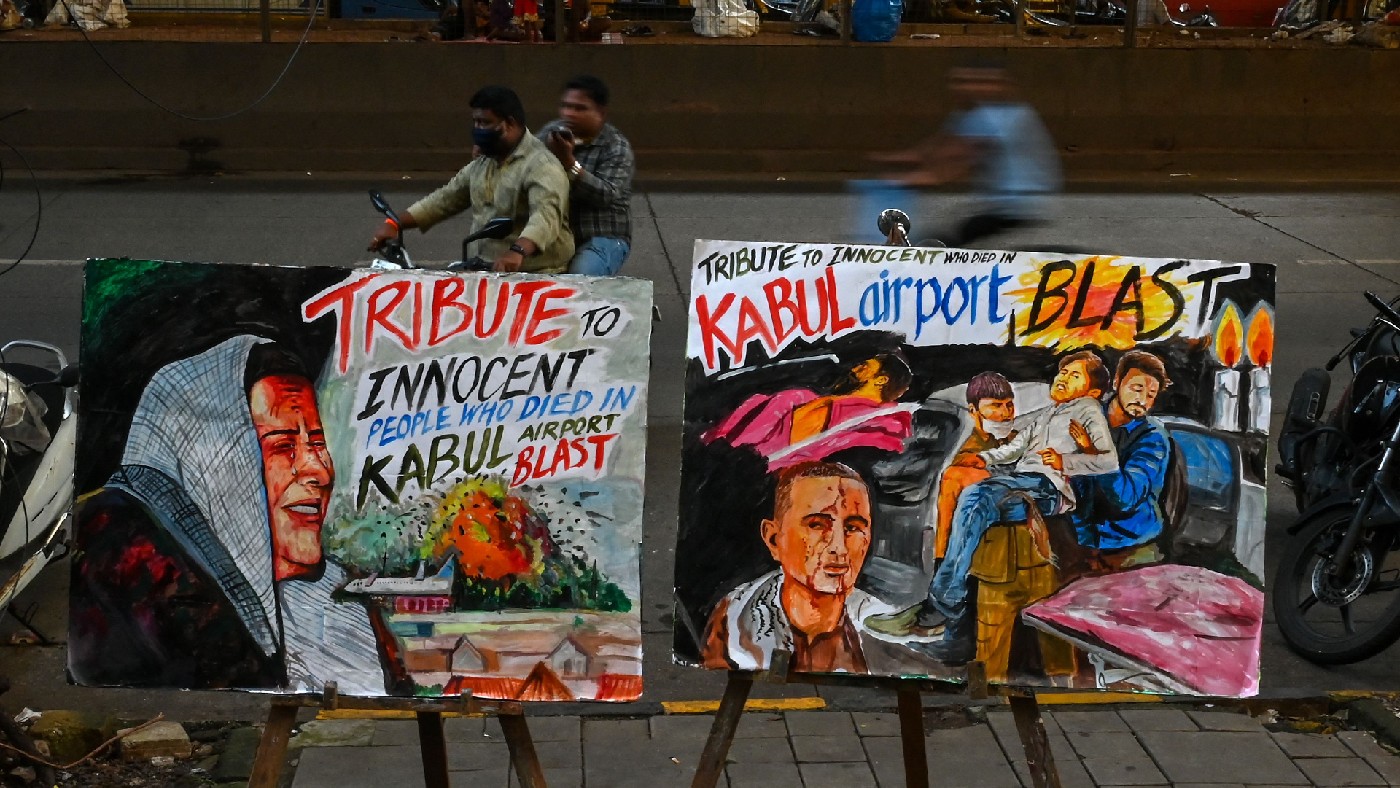The rise of Isis-K, the Islamist terrorist group with ‘merciless’ tactics
Last week it claimed responsibility for the ‘dramatic assault’ on Kabul airport – an attack that killed up to 170 people

A free daily email with the biggest news stories of the day – and the best features from TheWeek.com
You are now subscribed
Your newsletter sign-up was successful
Until recently, few people had even heard of the Islamic State in Khorasan Province (Isis-K), said Raffaello Pantucci in The Daily Telegraph. The Islamist group – which takes its name from a historical region encompassing parts of Iran, Afghanistan and other bits of central Asia – is thought to have been behind “some of the most atrocious massacres in recent years in Afghanistan”.
But it only announced itself to the world last week, when it claimed responsibility for the “dramatic assault” on Kabul airport – an attack that killed up to 170 people, including 13 US troops. The suicide bombing – which horrified the Taliban as much as anyone else – represents the “opening salvo” in the group’s quest to establish itself as the foremost jihadist organisation in the region.
The central Asian offshoot of Islamic State, Isis-K arrived in Afghanistan in 2014, said Anthony Loyd in The Times. At first, commanders in the US coalition were “dismissive” of the threat it posed. But its “merciless” tactics, mimicking those of Isis in Syria and Iraq, soon made them reconsider. By 2015, it had declared war on the Taliban, which it views as theologically corrupt and with which it competes for recruits and resources.
The Week
Escape your echo chamber. Get the facts behind the news, plus analysis from multiple perspectives.

Sign up for The Week's Free Newsletters
From our morning news briefing to a weekly Good News Newsletter, get the best of The Week delivered directly to your inbox.
From our morning news briefing to a weekly Good News Newsletter, get the best of The Week delivered directly to your inbox.
Soon after that, it began releasing propaganda videos of Taliban elders being lined up and “blown to pieces”. Its cruelties became legendary. Jailed captives told of saucepans full of severed heads being left outside their cells. In 2018, after a string of attacks carried out in Pakistan and Afghanistan by Isis-K, it was ranked among the world’s four deadliest terror organisations.
Today, the group has only between 500 and 1,500 fighters left in Afghanistan, said The Economist: it lost some 12,000 operatives in the three years from 2015 as a result of counter-terror strikes by the US and Pakistan. But despite having been rooted out of its eastern strongholds, it has managed to “strike repeatedly” against Afghan cities. And though it doesn’t pose an immediate threat to the West, Isis-K is now said to have absorbed defectors from the Haqqani network, a Taliban-allied group with long experience of conducting attacks in Kabul.
A free daily email with the biggest news stories of the day – and the best features from TheWeek.com